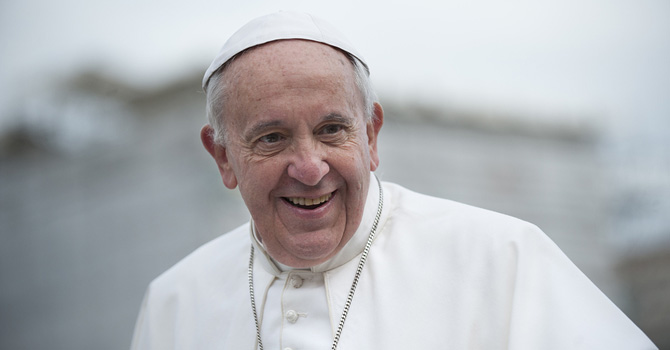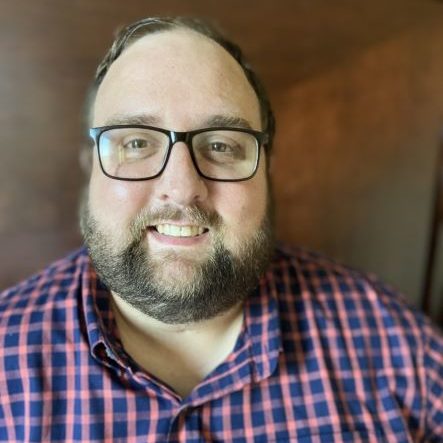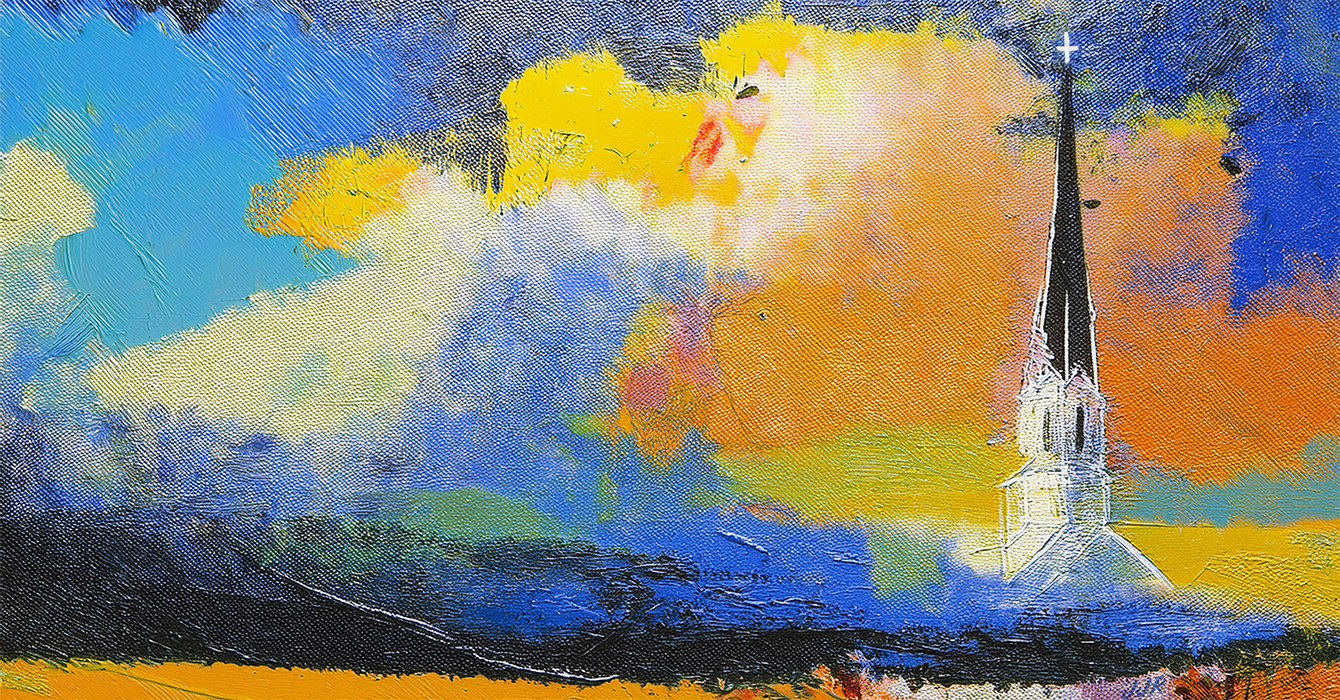Whether you’re liberal or conservative, Democrat or Republican, Catholic, Protestant, Muslim or Jew, count on being challenged in some way by Pope Francis during his visit to the United States this week, said John Carr, the director of the Initiative on Catholic Social Thought and Public Life at Georgetown University.
A former policy adviser to the United States Conference of Catholic Bishops, Carr said Pope Francis comes to this country with a very different perspective.
“We think we’re the center of the world,” Carr said. “But we are not the center of Pope Francis’ world. He looks at the world from the bottom up, from the outside in -- and that is not Washington’s way of looking at the world.”
Pope Francis, Carr said, does not fit into our political framework and ideological boxes. Even so, leaders in the church and elsewhere can learn much from the pope’s example.
Carr said there are two kinds of leaders. Those who feel overwhelmed and under threat are tempted to “hunker down,” preserve and protect what they have, and occasionally “throw out thunderbolts and judge others.”
“But if you think we have what the world needs, that our message on life, on family, on justice, on peace is what the world needs, then you engage and persuade.”
Francis is the ultimate “engage and persuade” leader, Carr said, and “he does so with hope, humor and mercy, and an openness to the perspectives of others.”
 Carr is a longtime leader at the intersection of faith and public life in Washington. In addition to serving as director of the Initiative on Catholic Social Thought and Public Life, he is the Washington correspondent for America, the Jesuit magazine. For more than two decades, he was director of the U.S. Catholic Bishops Department of Justice, Peace and Human Development, serving as a policy adviser on a broad range of issues.
Carr is a longtime leader at the intersection of faith and public life in Washington. In addition to serving as director of the Initiative on Catholic Social Thought and Public Life, he is the Washington correspondent for America, the Jesuit magazine. For more than two decades, he was director of the U.S. Catholic Bishops Department of Justice, Peace and Human Development, serving as a policy adviser on a broad range of issues.
Interested in the Pope's visit? Read News & Ideas, a weekday roundup of news about the church and the world.
He spoke with Faith & Leadership recently about Pope Francis’ visit this week to the United States and what it means for Catholics, Protestants and others. The following is an edited transcript.
Q: Help us put this trip into the context of Pope Francis’ papacy. This is the 10th foreign trip he’s taken since becoming pope in March 2013.
In some ways, it will be his most challenging trip. Who could have imagined that the pope would come to Washington through Havana, and both governments would be happy about that?
He comes to Washington as the ultimate Washington outsider.
There are a couple of firsts. One, it is surprising for a leader of his stature that he is coming to the United States having never set foot here before.
We think we’re the center of the world. But we are not the center of Pope Francis’ world. He looks at the world from the bottom up, from the outside in -- and that is not Washington’s way of looking at the world. While he believes that politics is a worthy vocation, I think he will challenge everybody, because he doesn’t fit into our political framework and our ideological boxes.
It will also be the first time a pope addresses a joint session of Congress. I’m old enough to remember that John Kennedy was told he shouldn’t be elected president because he would take advice from the pope. Now it seems that the only thing Democrats and Republicans agree on is that they need advice from the pope.
He comes with a very different approach. He is not offering a legislative agenda but a moral framework. He is not offering a five-point program but a focus on human life and dignity -- and that will make everybody in Washington a little bit uncomfortable.
Everybody will find moments of affirmation and challenge. If he stands up for unborn children, pro-lifers are going to feel encouraged. When he stands up for the undocumented, a lot of Democrats will want to applaud. When he talks about care for creation, all of us, I hope, will be challenged.
He’s coming to go to a conference on the family, and frankly, the family has been neglected in public life. Everybody makes speeches, but few really talk about the economic, cultural and moral pressures that make it hard to raise kids with dignity and integrity in this culture.
Q: What’s your take on his papacy so far?
During 2012-13, I was on a fellowship at the Institute of Politics at Harvard, and that summer I went back for a panel on Pope Francis.
I asked them to imagine if I called a publisher and said, “I have a great book on the Catholic Church.”
In Chapter 1, the pope resigns because he thinks he can’t handle it anymore. Chapter 2 focuses on an old Jesuit in Argentina riding the bus to and from work. Chapter 3, the old Jesuit is elected pope. Chapter 4, he won’t move into the palace, and he spends Holy Thursday washing the feet of young people, including Muslims and girls. And Chapter 5, he puts at the very center of his papacy the priorities of St. Francis -- the poor, creation and peace.
I said, “What do you think a publisher would tell me to do with my book?”
It’s a great story, and frankly, I can’t wait to see how it turns out. This is a turnaround that will be studied in business schools for a long time.
Until two years ago, I worked for the U.S. Conference of Catholic Bishops, for 20-some years. A few years ago, all anyone talked about was the sexual abuse scandal and its terrible costs -- moral, spiritual and financial.
Now, when I run into people, they say, “I like your pope.” I heard one person say, “You have a pope who knows how to pope.”
Think about that. What are those qualities?
Well, authenticity. He knows who he is. He says what he thinks, and he expresses it in his life. He thinks power comes from service.
In one of our panels at the Initiative, Michael Gerson said, “I’m an evangelical, but you have a pope who is a troublemaker, and there is nothing more dangerous than a troublemaker with a plan.”
I think he is a troublemaker, in the sense that he is going back to the fundamentals. He is a walking, talking parable. It’s not only what he says; it’s what he does. It’s not only his strong words but his humble ways that have caught our attention and challenged our prejudices and presumptions.
In this trip, it won’t only be the speeches he gives but where he goes. He will go from Capitol Hill, talking to some of the most powerful people on earth, to have lunch with the hungry and the homeless, maybe the most powerless people in Washington. He will go from the U.N. to an inner-city school in Harlem. He will go from Independence Hall in Philadelphia to a prison.
It’s not just what he says but what he does, and my advice to leaders here in Washington is, “Don’t try to politicize the pope. Don’t try to push him into our ideological and political boxes. Listen and learn and follow his example.”
The people who try to politicize this visit will regret it. The more political they make it, the less impact it will have for their causes.
Q: There was a piece in Crux recently that said the key to understanding Pope Francis is to realize that he is at heart a parish priest.
He’s a pastor, and now he’s the world’s pastor. This is a priest who, when he had free time, didn’t go to the soccer game or the opera. He went to the slums of Buenos Aires.
So for him, whether your marriage papers are in order is not the most important question. Whether you can feed your kids and whether you can raise a family in dignity is the central question.
He offers a message of mercy instead of fear at a time when we need talk of mercy and hope, because there’s way too much fear and sadness in our world.
Q: What does this trip mean for Catholics in the United States?
It’s the first time we’ll see him up close, and it’s the first time he’ll see us up close. Frankly, I think we’ll both fall in love.
I think he will find a very diverse, vibrant, faithful community of Christians. We have huge problems -- declining Mass attendance, fewer priests and religious, the human, moral and financial costs of the sexual abuse crisis.
But we have enormous assets -- the principles of our faith, the witness of Catholic Charities at home and Catholic Relief Services around the world. We have thousands of parishes. We have 10,000 schools. We have 600 hospitals. We have hundreds of universities. There is a vitality that comes from a church that is alive and struggling with how to proclaim the faith in our time.
I think he will see diversity and he will see some divisions, but he will also see a vibrant community of faith that is looking for leadership -- and he is providing it. Frankly, I think the divisions are more among the elites than they are among the people in the pew.
Q: What is the significance of the pope’s visit for Protestants? A neighbor told me recently that she thought Pope Francis was “the best pope we’ve ever had.” What’s interesting is that she’s not Catholic.
Well, exactly. In so many ways, he’s a universal figure, and for Christians he’s a compelling figure because he walks and talks like Christ, and that ought to unite us and bring us together.
He is an unlikely Latin American pastor in that he is not defensive about evangelicals and Protestants. He has had warm relationships with Christians of other faiths and the Jewish and Muslim communities.
One of his priorities is bringing the Christian community and the larger religious community together, whether it’s around peace in the Middle East or the environment or climate change or concern for the poor.
He lifts up our unity instead of focusing on our divisions, and he does so, again, not by some trendy agenda but in a very traditional way, and that is, “Let’s go back to Christ.”
Q: What is the significance of this trip for U.S. politics, particularly now, in this current political environment?
The polarization today is horrible. I think he is bringing a moral message to a demoralized Congress. They’re demoralized in the sense that they are so divided they can’t get anything done, and they’re demoralized in the sense that they’ve lost their moral compass.
The measure of their lives, our lives, our society, is how we care for the least of these. Well, those are not the priorities of the Senate Finance Committee.
Pope Francis has this terrible, wonderful metaphor of “the throwaway society,” and I can’t help thinking about the Syrian boy on the beach or the Planned Parenthood videos.
We’re a society that treats people as things, and we throw them away. He is challenging all of us -- left, right, Democrats, Republicans, Catholics, other Christians, Jews and Muslims.
And because he is so clear about his own need for forgiveness, I think there’s an openness to him.
In the interview that appeared in America Magazine in 2013, the first question was, “Who is Jorge Mario Bergoglio?” And he said, “I’m a sinner.”
Well, this is the only infallible person on earth, who begins by saying, “I’m a sinner.”
It seems to me there are two kinds of leadership.
If you think that the culture has overwhelmed us, whether it’s on life or justice, that we’re just being overwhelmed by the tides of the moment, then the natural temptation is to hunker down and preserve and protect what you have, and occasionally throw out thunderbolts and judge others.
But if you think we have what the world needs, that our message on life, on family, on justice, on peace is what the world needs, then you engage and persuade.
I think Francis is the ultimate “engage and persuade” kind of leader, and he does so with hope, humor and mercy, and an openness to the perspectives of others.
That’s an example that leaders in the church and the leaders in our nation ought to follow.
Q: The pope’s visit really does get to the heart of what the Initiative’s work is about, doesn’t it?
There is a hunger for what we work with. We are only two years old. We’ve done about a dozen dialogues, and more than 6,000 people have found their way to those sessions.
We’re doing work with young Catholics who work on Capitol Hill or at the White House or in the government, and they want to talk about how faith affects their lives and their work. We convened a major leadership summit on poverty with Catholics and evangelicals and drew 150 people, including the president of the United States, who came to be a part of a panel on poverty with people who disagreed with him.
What we are finding is that Catholic social thought and the message of Pope Francis is a way to bring people together across religious, political and ideological boundaries. People are hungry for a moral vocabulary and a framework that is an alternative to politics as usual, business as usual, so this is a great time to be offering these ideas and to be sharing the message of this leader.
Q: How willing will Americans -- Catholic and otherwise -- be to listen to him?
Well, that’s the test.
I’ll just speak personally. I’ve been doing this a long time. I’ve never felt more challenged by a religious leader.
When he warns against “couch-potato Catholics,” he’s talking about me. If he starts talking about “recliner Catholics,” I’m really in trouble.
He also talks about “good-enough Catholics.”
We go to church. Isn’t that good enough? We make contributions. Isn’t that good enough? We help out with the poor. Isn’t that good enough?
He is challenging all of us, and his message is one of encounter. It’s one of prayer. It’s one of service. It’s one of change. A lot of us need to be shaken out of our complacency. So I hope, I really hope, that we’ll listen and learn and not just try to figure out where the pope agrees with me.
I grew up at a time when the question was, “Do I agree with the pope?” We seem to have turned that around.
Q: What should people watch for in this trip?
Watch where he goes and what he does as well as what he says -- who he reaches out to, how he treats everybody with dignity. It’s often his humble ways and his concern for the weak and vulnerable that proclaim the gospel more effectively than any speech.
The second thing I tell myself and others is look for the challenges. Look for the ways in which he takes on some of my prejudices and biases, and be open to hearing and learning differently.
Third, remember that he comes as a pastor, not a politician, not a policy wonk. His power comes from not only who he is but also what he believes and who he cares about. As I said, he looks at the world from the bottom up, and that’s not the way most of us look at it.
There’s going to be something disorienting about a leader who just sees the world differently than we do.








